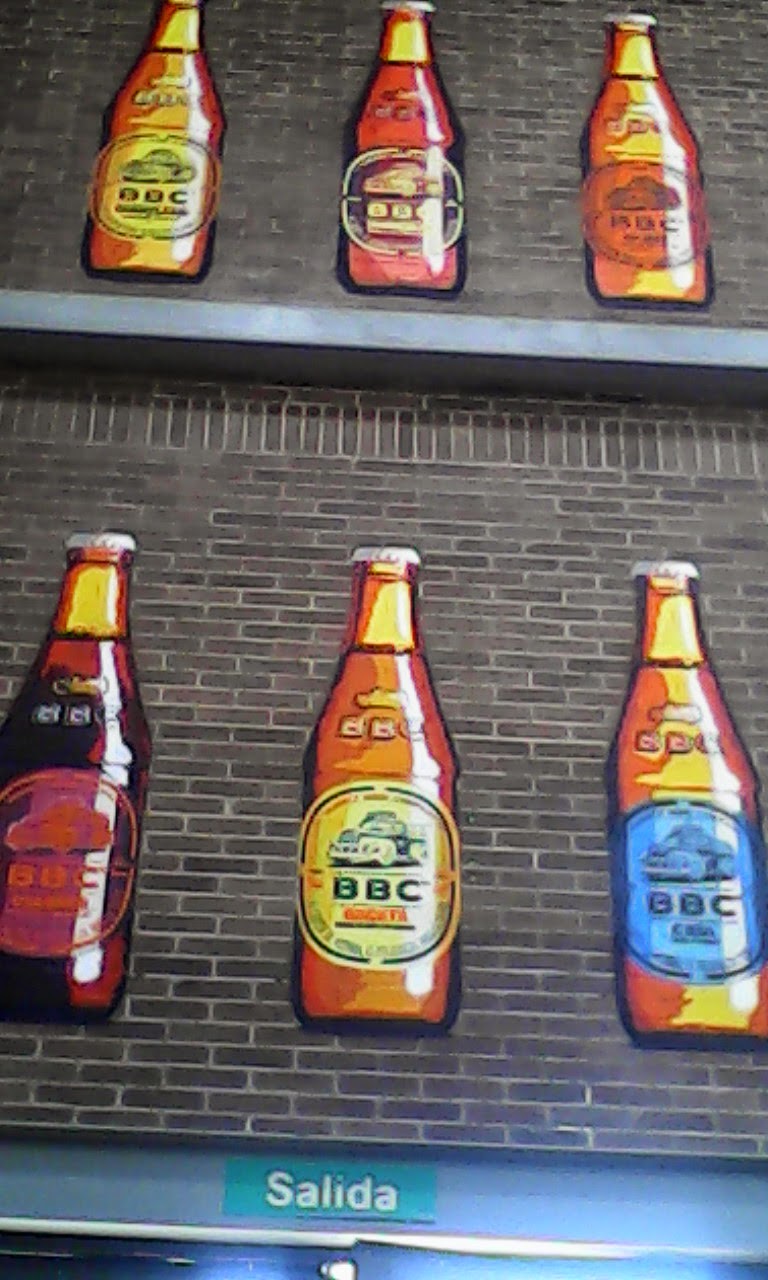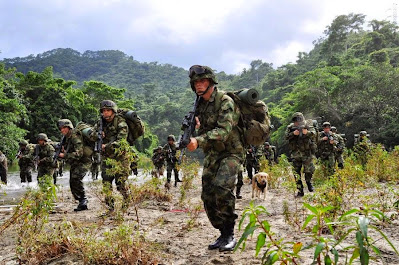This blog generally stands up for the underdog, those very much up against it. Well, this is certainly the case when it comes to social classes and the sporting arena.
It tends to be less so, however, when price comes into play. That is to say, value-for-money is the motto and very often, at this moment in time anyway, that leads to quantity over quality, wherever it can be found.
Now, it must be said that a lot of the time in Colombia, especially in relation to food, buying from the local vendors or producers is cheaper than going to the big national and multinational "monsters", in terms of grocery shopping and restaurants that is.
In that way, I still feel like I’m helping the little guys eke out a living. It’s usually the reverse in the developed world when it comes to buying food or eating out; getting it at lower prices typically means visiting the bigger chains.
As regards another recurring expense, one listed in the socialising category, it’s somewhat different.
It tends to be less so, however, when price comes into play. That is to say, value-for-money is the motto and very often, at this moment in time anyway, that leads to quantity over quality, wherever it can be found.
 |
| Poker: A Colombian beer 'giant'. (Image from Facebook.) |
In that way, I still feel like I’m helping the little guys eke out a living. It’s usually the reverse in the developed world when it comes to buying food or eating out; getting it at lower prices typically means visiting the bigger chains.
As regards another recurring expense, one listed in the socialising category, it’s somewhat different.
In the consumption of beer, the Colombian masses – as well as this writer, on the odd occasion – drink the mass-produced stuff. Well over 90 per cent of this market is in the hands of Bavaria, a Colombian company originally but now part of the global SABMiller group.
Thus, downing any of the Bavaria beers – from the cheaper (and slightly weaker) Aguila, Costeña, Pilsen and Poker to the somewhat fancier Club Colombia – is, in a sense, supporting a "monstrous" multinational.
Yet, these beers are readily available in the many little privately owned tiendas (bars-cum-shops) throughout Colombia.
Thus, downing any of the Bavaria beers – from the cheaper (and slightly weaker) Aguila, Costeña, Pilsen and Poker to the somewhat fancier Club Colombia – is, in a sense, supporting a "monstrous" multinational.
Yet, these beers are readily available in the many little privately owned tiendas (bars-cum-shops) throughout Colombia.
Plus, the more impoverished the barrio, the cheaper you’ll find the drinks. In this way, by going to such locations and having a few Bavaria-produced beers you’re supporting the poorer populations, pumping additional (little as it may be) money into the micro economy.
On the flip side, you have the Bogotá Beer Company (BBC), which brands itself as ‘the biggest small brewery in Colombia’ (‘la cervecería pequeña más grande de Colombia’ in Spanish). Up against Bavaria/SABMiller, in terms of overall market share, it barely registers a beat.
So, in theory, it falls into the category of those I like to support. However, its market is quite removed from your typical bargain-basement Bavaria beer drinker.
 |
| Bogotá Beer Company: Interesting initials. |
So, in theory, it falls into the category of those I like to support. However, its market is quite removed from your typical bargain-basement Bavaria beer drinker.
It only sells its produce – at a far greater price than the likes of Costeña or Poker – in its own pubs, more upmarket establishments and a couple of supermarket chains. You're talking about a more exclusive product, out of the daily reach of the majority of Colombians.
The BBC will point to what it sees as its superior quality and more artisanal approach in brewing compared to Bavaria. That may be so, but when it comes to letting the hair down, a fine ale retailing at least five times more than a mass-produced lager tends not to be the most attractive option.
What's more, it's not like those cheaper beers are unpalatable; on the contrary, they're rather agreeable to the taste buds.
In one regard, you might say choosing the Bavaria beers is supporting the simple over the sophisticated. And we could all do with toning things down every now and again, especially around this time of year.
Now, where did I leave that Macallan fine and rare?
The BBC will point to what it sees as its superior quality and more artisanal approach in brewing compared to Bavaria. That may be so, but when it comes to letting the hair down, a fine ale retailing at least five times more than a mass-produced lager tends not to be the most attractive option.
What's more, it's not like those cheaper beers are unpalatable; on the contrary, they're rather agreeable to the taste buds.
In one regard, you might say choosing the Bavaria beers is supporting the simple over the sophisticated. And we could all do with toning things down every now and again, especially around this time of year.
Now, where did I leave that Macallan fine and rare?

.jpg)




